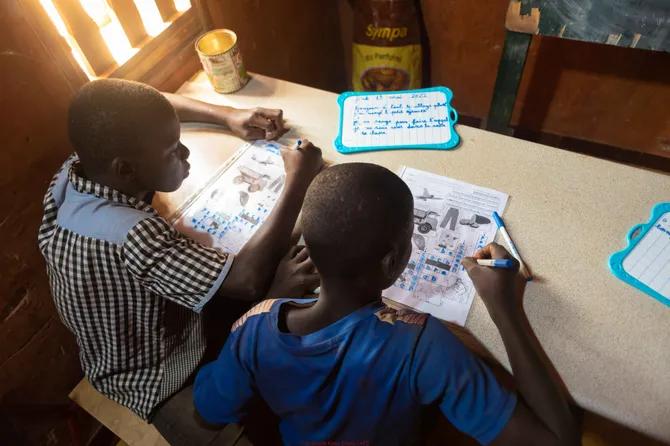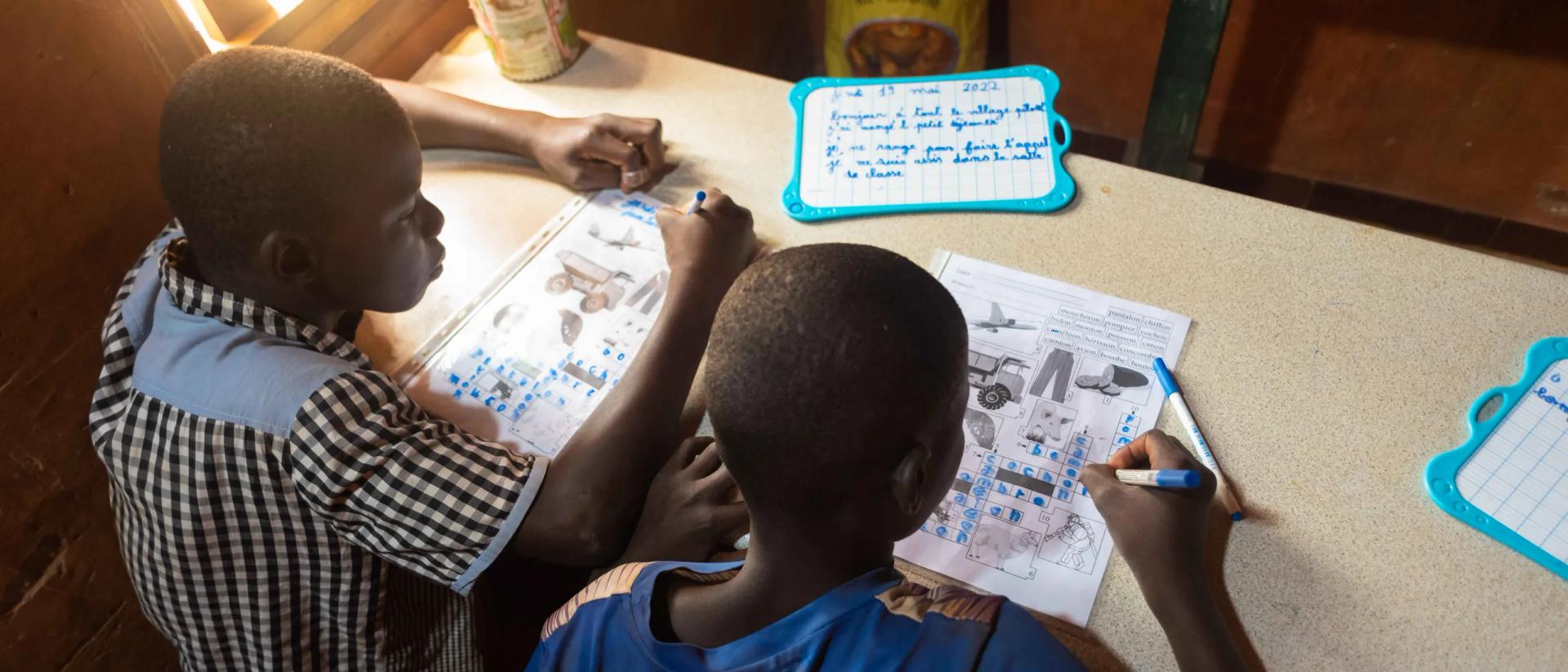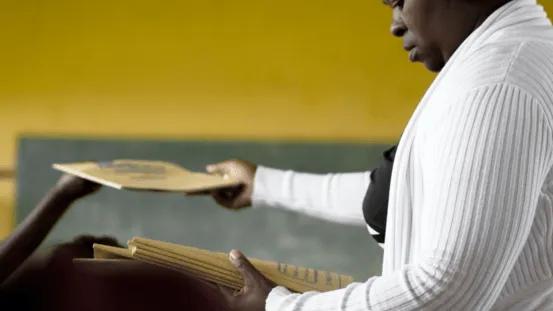Benin
Health
Training dogs to detect breast cancer, a method for screening disadvantaged women in Benin
Impact
News and Insights
The Ministry of Education of Ghana and its specialized agency Ghana Education Service (GES) are in the process of scaling up a Differentiated Learning program in 10,000 Ghanaian schools. In the context of this project, Innovations for Poverty Action will provide them technical assistance to ensure the effective and evidence-based scaling-up of the program.
Project ported by:


While Ghana has greatly expanded access to primary school in the last two decades, very few children meet grade-level academic standards and an astounding number of students perform far below basic literacy and numeracy competency levels.
A 2016 National Education Assessment found that 91% of Ghanaian children were enrolled in primary school, but less than 25% and 37% of students in primary grades 4 and 6 had the required level in mathematics and English respectively (Ministry of Education of Ghana, 2016). These scores mask an important and related concern: within-grade heterogeneity.

Since 2010, Innovations for Poverty Action (IPA) has partnered with the Ghana Ministry of Education and Ghana Education Service, a specialized agency under the ministry, to develop scalable ways to improve the quality of education in the country, using evidence to inform program design and testing solutions at scale. IPA conducted the first evaluation of the Differentiated Learning program in Ghana in 2013, and found significant improvements in numeracy and literacy on average.
Today and over the next five years, the Ghanaian government and its development partners are investing in rolling out the Differentiated Learning program to 10,000 schools through the Ghana Accountability for Learning Project (GALOP). Embedding data-driven learning mechanisms into the project cycle will be critical to ensure that the program’s implementation at scale follows the proven intervention model. FID funding will allow IPA to strengthen the monitoring, evaluation, and learning capacity of the Ministry of Education by providing technical assistance to the Ghana Education Service in scaling up the program.
"Differentiated learning” also known as “Teaching at the Right Level” – is a pedagogical approach that tailors instruction at the level of the student’s current knowledge, focusing on foundational literacy and numeracy skills. Differentiated Learning groups children by learning level, rather than by age or grade.
Research has identified positive associations between education and development outcomes, including improved health, productivity, peace, and gender equity. Addressing failing education systems will advance learning outcomes and deliver upon these additional benefits.
The innovation specifically targets students who are falling behind in class, including those who are returning to school with varying learning levels after the disruption of their schooling caused by the closure of schools due to the Covid-19-pandemic. Differentiated Learning will be implemented in 10,000 primary schools, including Ghana’s lowest-performing schools, with the goal of benefiting nearly 1,880,000 students over five years.
National assessments of primary school students also highlight that the innovation would mostly benefit students in regions of Ghana with the lowest national test scores (Northern Regions). Differentiated Learning is therefore a key strategy for improving education in Ghana and reducing disparities in educational attainment.
Projects
Projects funded by FID